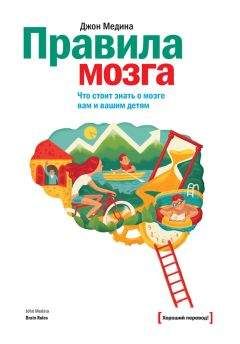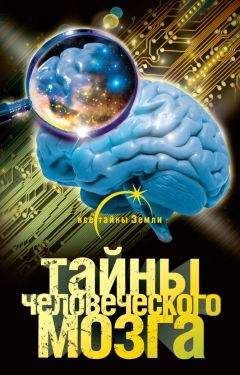Рик Хансон - Мозг и счастье. Загадки современной нейропсихологии
Gluten sensitivity as a neurological illness. Journal of Neurology, Neurosurgery and Psychiatry 72:560–563.
Gottman, J. 1995. Why Marriages Succeed or Fail: And How You Can Make Yours Last. New York: Simon and Schuster.
Gould, E., P. Tanapat, N. B. Hastings, T. Shors. 1999. Neurogenesisin adulthood: A possible role in learning. Trends in Cognitive Sciences 3:186–192.
Gross, J. J. and O. P. John. 2003. Individual differences in two emotion regulation processes: Implications for affect, relationships, and well-being. Journal of Personality and Social Psychology 85:348–362.
Guastella, A. J., P. U. B. Mitchell and M. R. Dads. 2008. Oxytocin increases gaze to the eye region of human faces. Biological Psychiatry 305:3–5.
Gusnard, D. A., E. Abuja, G. I. Schulman and M. E. Raichle. 2001. Medial prefrontal cortex and self-referential mental activity: Relation to a default mode of brain function. Proceedings of the National Academy of Sciences 98:4259–4264.
Hadjivassiliou, M., A. Gibson, G. A. B. Davies-Jones, A. J. Lobo,
T. J. Stephenson and A. Milford-Ward. 1996. Does cryptic gluten sensitivity play a part in neurological illness? Lancet 347:369–371.
Hadjivassiliou, M., R. A. Gunwale and G. A. B. Davies-Jones. 2002.
Haidt, J. 2007. The new synthesis in moral psychology. Science 316:998–1002.
Han, S. and G. Northoff. 2008. Culture-sensitive neural substrates of human cognition: A transcultural neuroimaging approach. Nature Reviews Neuroscience 9: 646–654.
Hanson, R., J. Hanson and R. Pollycove. 2002. Mother Nurture: A Mother’s Guide to Health in Body, Mind and Intimate Relationships . New York: Penguin.
Harbaugh, W. T., U. Mayr and D. R. Burghart. 2007. Neural responses to taxation and voluntary giving reveal motives forcharitable donations. Science 316:1622–1625.
Hariri, A. R., S. Y. Bookheimer and J. C. Mazziotta. 2000. Modulating emotional responses: Effects of a neocortical network on thelimbic system. Neuro Report 11:43–48.
Hebb, D. O. 1949. The organization of behavior. New York: Wiley.
Herrmann, E., J. Call, H. Hernández-Lloreda, B. Hare and
M. Tomasello. 2007. Humans have evolved specialized skills ofsocial cognition: The cultural intelligence hypothesis. Science 317:1358–1366.
Hо́lzel, B. K., U. Ott, T. Gard, H. Hempel, M. Weygandt,
K. Morgen and D. Vaitl. 2008. Investigation of mindfulness meditation practitioners with voxel-based morphometry. Social Cognitiveand Affective Neuroscience 3:55–61.
Hyman, M. 2009. The Ultra Mind Solution . New York: Scribner.
Jankowiak, W. and E. Fischer. 1992. Romantic love: A cross-cultural perspective. Ethnology 31:149–155.
Jha, A. P., J. Krompinger and M. J. Baime. 2007. Mindfulness training modifies subsystems of attention. Cognitive, Affective, Behavioral Neuroscience 7:109–119.
Jiang, Y. and S. He. 2006. Cortical responses to invisible faces: Dissociating subsystems for facial-information processing. Current Biology 16:2023–2029.
Joseph, J. A., N. A. Denisova, G. Arendash, M. Gordon, D. Diamond,
B. Shukitt-Hale and D. Morgan. 2003. Blueberry supplementation enhances signaling and prevents behavioral defi-cits in an Alzheimer disease model. Nutritional Neuroscience 6(3):153–162.
Judson, O. 2007. The selfless gene. Atlantic , October, 90–97.
Kaplan, B. J., S. G. Crawford, C. J. Field and J. S. A. Simpson. 2007. Vitamins, minerals and mood. Psychological Bulletin 133:747–760.
Keeley, L. H. 1997 . War Before Civilization: The Myth of the Peaceful Savage . New York: Oxford University Press.
Kidd, P. 2005. Neurodegeneration from mitochondrial insufficiency: Nutrients, stem cells, growth factors and prospects for brain rebuilding using integrative management. Alternative Medicine Review 10:268–293.
Knoch, D., A. Pascual-Leone, K. Meyer, V. Treyer and E. Fehr. 2006. Diminishing reciprocal fairness by disrupting the right prefrontal cortex. Science 314:829–832.
Koch, C. and N. Tsuchiya. 2006. Attention and consciousness: Two distinct brain processes. Trends in Cognitive Sciences 11:16–22.
Kocsis, B. and R. P. Vertes. 1994. Characterization of neurons ofthe supramammillary nucleus and mammillary body that dischargerhythmically with the hippocampal theta rhythm in therat. Journal of Neuroscience 14:7040–7052.
Kornfield, J. 1996. Teachings of the Buddha. Boston: Shambhala.
Kosfeld, M., M. Heinrichs, P. Zak, U. Fischbacher and E. Fehr. 2005. Oxytocin increases trust in humans. Nature 435:673–676.
Kristal-Boneh, E., M. Raifel, P. Froom and J. Ribak. 1995. Heart ratevariability in health and disease. Scandinavian Journal of Work, Environment and Health 21:85–95.
Lazar, S., C. Kerr, R. Wasserman, J. Gray, D. Greve, M. Treadway, M. McGarvey, B. Quinn, J. Dusek, H. Benson, S. Rauch, C. Moore and B. Fischl. 2005. Meditation experience is associated with increased cortical thickness. Neuro Report 16:1893–1897.
Leary, M. R., C. E. Adams and E. B. Tate. 2006. Hypo-egoic selfregulation: Exercising self-control by diminishing the influenceof the self. Journal of Personality 74:180–183.
Leary, M. R. and N. R. Buttermore. 2003. The evolution of the humanself: Tracing the natural history of self-awareness. Journal forthe Theory of Social Behaviour 33:365–404.
Leary, M., E. Tate, C. Adams, A. Allen and J. Hancock. 2007. Selfcompassion and reactions to unpleasant self-relevant events: Theimplications of treating oneself kindly. Journal of Personality 92:887–904.
LeDoux, J. E. 1995. Emotion: Clues from the brain. Annual Review of Psychology 46:209–235.
Legrand, D. and Ruby, P. 2009. What is self-specific? Theoretical investigation and critical review of neuroimaging results. Psychological Review 116: 252–282.
Lewis, M. D. 2005. Self-organizing individual differences in brain development. Developmental Review 25:252–277.
Lewis, M. D. and R. M. Todd. 2007. The self-regulating brain: Cortical-subcortical feedback and the development of intelligentaction. Cognitive Development 22:406–430.
Libet, B. 1999. Do we have free will? Journal of Consciousness Studies 6:47–57.
Licinio J., P. W. Gold and M. L. Wong. 1995. A molecular mechanism for stress-induced alterations in susceptibility to disease. Lancet 346:104–106.
Lieberman, M., N. Eisenberg, M. Crocket, S. Tom, J. Pfeifer and
B. Way. 2007. Putting feelings into words. Psychological Science 18:421–428.
Lilly, J. 2006. The Deep Self: Consciousness Exploration in the Isolation Tank. Nevada City, CA: Gateways Books and Tapes.
Linden, D. J. 2007. The Accidental Mind: How Brain Evolution Has Given Us Love, Memory, Dreams and God . Cambridge, MA: The Belknap Press of Harvard University Press.
Luders, E., A. W. Toga, N. Lepore and C. Gaser. 2009. The underlying anatomical correlates of long-term meditation: larger hippocampal and frontal volumes of gray matter. Neuroimage 45 :672–678.
Luskin, F., M. Reitz, K. Newell, T. G. Quinn and W. Haskell. 2002. A controlled pilot study of stress management training of elderlypatients with congestive heart failure. Preventive Cardiology 5:168–174.
Lutz, A., J. Brefczynski-Lewis, T. Johnstone and R. Davidson. 2008. Regulation of the neural circuitry of emotion by compassion meditation: Effects of meditative expertise. PLoS ONE 3(3): e1897.
Lutz, A., L. Greischar, N. Rawlings, M. Ricard and R. Davidson. 2004. Long-term meditators self-induce high-amplitude gammasynchrony during mental practice. Proceedings of the National Academy of Sciences 101:16369–16373.
Lutz, A., J. Lachaux, J. Martinerie and F. Varela. 2002. Guiding the study of brain dynamics by first-person data: Synchrony patterns correlate with ongoing conscious states during a simple visual task. Proceedings of the National Academy of Sciences 99:1586–1591.
Lutz, A., H. A. Slager, J. D. Dunne and R. J. Davidson. 2008. Attention regulation and monitoring in meditation. Trends in Cognitive Sciences 12:163–169.
Ma, Q. L., B. Teter, O. J. Ubeda, T. Morihara, D. Dhoot, M. D. Nyby,
M. L. Tuck, S. A. Frautschy and G. M. Cole. 2007. Omega-3fatty acid docosahexaenoic acid increases SorLA/LR11, a sorting protein with reduced expression in sporadic Alzheimer’s disease (AD): Relevance to AD prevention. The Journal of Neuroscience 27:14299–14307.
Mackenzie, M. 2009. Enacting the self: Buddhist and Enactivistapproaches to the emergence of the self. Phenomenology and the Cognitive Sciences (in press).
MacLean, P. D. 1990. The Triune Brain in Evolution: Role in Paleocerebral Functions . New York: Springer.
Maguire, E., D. Gadian, I. Johnsrude, C. Good, J. Ashburner,
R. Frackowiak and C. Frith. 2000. Navigation-related structural change in the hippocampi of taxi drivers. Proceedings of the National Academy of Sciences 97:4398–4403.
Main, M., E. Hesse and N. Kaplan. 2005. Predictability of attachment behavior and representational processes at 1, 6 and 19 years of age: The Berkeley Longitudinal Study. In Attachmentfrom Infancy to Adulthood: The Major Longitudinal Studies , edited by K. E. Grossmann, K. Grossmann and E. Waters. New York: Guilford Press.
Maletic, V., M. Robinson, T. Oakes, S. Iyengar, S. G. Ball and J. Russell. 2007. Neurobiology of Depression: An Integrated View оf Key Findings. International Journal of Clinical Practice 61:2030–2040.
Marz, R. B. 1999. Medical Nutrition from Marz , 2nd ed. Portland OR: Omni Press.
McClure, S. M., D. I. Laibson, G. Loewenstein and J. D. Cohen. 2004. Separate neural systems value immediate and delayed monetary rewards. Science 306:503–507.
McCraty, R., M. Atkinson and D. Thomasino. 2003. Impact of aworkplace stress reduction program on blood pressure and emotional health in hypertensive employees. Journal of Alternativeand Complementary Medicine 9:355–369.
Messier, C. and M. Gagnon. 2000. Glucose regulation and brain aging: Nutrition and cognitive decline. The Journal of Nutrition, Health and Aging 4:208–213.
Meyer, J. S. and L. F. Quenzer. 2004. Psychopharmacology: Drugs, the Brain and Behavior. Sunderland, MA: Sinauer Associates.
Miller, A. 2008. The methylation, neurotransmitter and antioxidant connections between folate and depression. Alternative Medicine Review 13(3):216–226.
Moll, J., F. Krueger, R. Zahn, M. Pardini, R. Oliveira-Souza and J. Grafman. 2006. Human fronto-mesolimbic networks guidedecisions about charitable donation. Proceedings of the National Academy of Sciences 103:15623–15628.
Monfils, M-H., K. K. Cowansage, E. Klann and J. LeDoux. 2002. Extinction-reconsolidation boundaries: Key to persistent attenuationof fear memories. Science 324:951–955.
Morris, M. C., D. A. Evans, C. C. Tangney, J. L. Bienias, R. S. Wilson,
N. T. Aggarwal and P. A. Scherr. 2005. Relation of the tocopherol forms to incident Alzheimer disease and to cognitivechange. American Journal of Clinical Nutrition 81:508–514.
Muller, S. F. Santorelli, F. Urbanowski, A. Harrington, K. Bonus and
J. F. Sheridan. 2003. Alterations in brain and immunefunction produced by mindfulness meditation. Psychosomatic Medicine 65:564–570.
Murray, R. K., D. K. Granner, P. A. Mayes and V. W. Rodwell. 2000. Harper’s Biochemistry , 25th ed. New York: McGraw-Hill.
Nanamoli, B. and B. Bodhi. 1995. The Middle Length Discourses of the Buddha: A Translation of the Majjhima Nikaya (Teachings of the Buddha). Boston: Wisdom Publications.
Niedenthal, P. 2007. Embodying emotion. Science 316:1002.
Nimchinsky, E., E. Gilissen, J. Allman, D. Perl, J. Erwin and P. Hof. 1999. A neuronal morphologic type unique to humans and great apes. Proceedings of the National Academy of Science 96:5268–5273.
Norenzayan, A. and A. F. Shariff. 2008. The origin and evolution ofreligious prosociality. Science 322:58–62.
Nowak, M. 2006. Five rules for the evolution of cooperation. Science 314:1560–1563.
Oberman, L. M. and V. S. Ramachandran. 2007. The simulatingsocial mind: The role of the mirror neuron system and simulationin the social and communicative deficits of autism spectrumdisorders. Psychology Bulletin 133:310–327.
O’Reilly, R. 2006. Biologically based computational models of highlevel cognition. Science 314:91–94.
Pare, D., D. R. Collins and J. G. Pelletier. 2002. Amygdala oscillationsand the consolidation of emotional memories. Trends in Cognitive Sciences 6:306–314.
Park, M., G. W. Ross, H. Petrovitch, L. R. White, K. H. Masaki,
J. S. Nelson, C. M. Tanner, J. D. Curb, P. L. Blanchette and R.
D. Abbott. 2005. Consumption of milk and calcium in midlife and the future risk of Parkinson disease. Neurology 64:1047–1051.
Paus, T. 2001. Primate anterior cingulate cortex: Where motor control, drive and cognition interface. Nature Reviews Neuroscience 2:417–424.
Pedata, F., L. Giovannelli, G. Spignoli, M. G. Giovannini and
G. Pepeu. 1985. Phosphatidylserine increases acetylcholinerelease from cortical slices in aged rats. Neurobiology of Aging 6:337–339.
Peeters, G. and J. Czapinski. 1990. Positive-negative asymmetry inevaluations: The distinction between affective and informational negativity effects. In European Review of Social Psychology: Volume 1 , edited by W. Stroebe and M. Hewstone. New York: Wiley.
Petrovic, P., R. Kalisch, T. Singer and R. J. Dolan. 2008. Oxytocin attenuates affective evaluations of conditioned faces andamygdala activity. Journal of Neuroscience 28:6607–6615.
Pitcher, D., L. Garrido, V. Walsh and B. C. Duchaine. 2008. Transcranial magnetic stimulation disrupts the perception andembodiment of facial expressions. The Journal of Neuroscience 28:8929–8933.
Posner, M. I. and M. K. Rothbart. 2000. Developing mechanisms of self-regulation. Development and Psychopathology 12:427–441.
Puri, B. K. 2006. High-resolution magnetic resonance imaging sincinterpolation-based subvoxel registration and semi-automatedquantitative lateral ventricular morphology employing thresholdcomputation and binary image creation in the study of fattyacid interventions in schizophrenia, depression, chronic fatigue syndrome and Huntington’s disease. International Review of Psychiatry 18:149–154.




